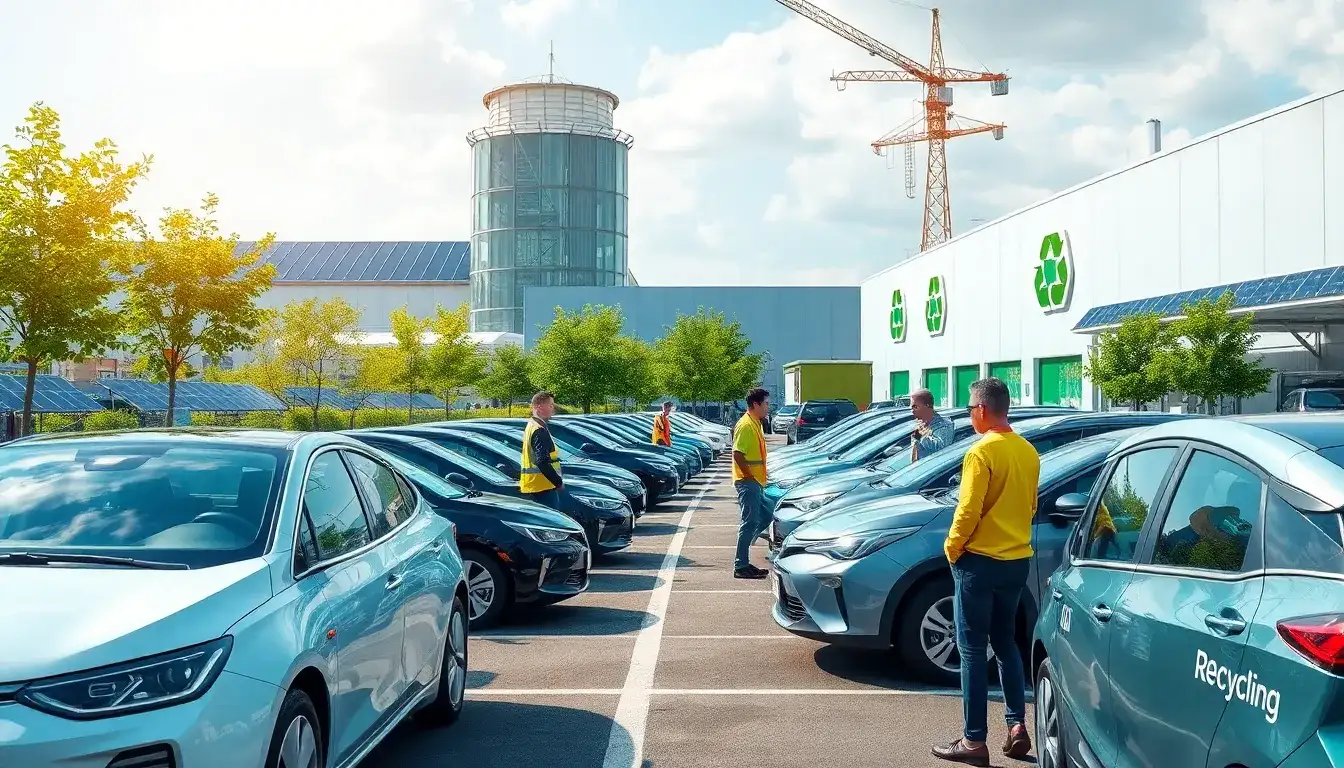
New Energy Vehicles continue to make strides in the market, with electric vehicle (EV) battery recycling becoming a focal point for collaboration between major companies. Recently, Guanjiao High-Tech has teamed up with Jiangsu New Energy to enhance the efficiency of battery recycling as they gear up for 2025.
On March 12, 2025, Everyday Financial Newspaper reported that Guanjiao High-Tech (SZ002074), valued at 23.13 billion yuan with a market capitalization of 41.7 billion yuan, announced its collaboration with Jiangsu New Energy (01783.HK). The partnership aims to establish a battery recycling and service network, enhancing the infrastructure for EV battery recycling and usage.
This collaboration is expected to boost the recycling capabilities of both companies, especially in the context of the growing demand for electric vehicles. By 2025, Guanjiao High-Tech plans to recycle approximately 300 GWh of batteries annually, with the number of service points expected to exceed 100, significantly enhancing their operational efficiency.
According to reports, Guanjiao High-Tech’s focus will also include providing technological support and training for personnel involved in the service stations, while Jiangsu New Energy will facilitate the development of a comprehensive network for battery service and recycling.
Both companies are working towards establishing testing points across 10 service locations in the region, with the intention of expanding to 100 service points over time. Their efforts will include establishing a core trading center for battery materials.
The collaboration is a part of a broader strategy that aligns with China’s goal to enhance the EV battery recycling industry and reduce carbon footprints. By 2024, the target is to achieve an annual battery recycling capacity of 82 million units, with projections indicating that by 2028, this figure could exceed 400 million units.
Furthermore, recent data shows that the Chinese EV market has seen substantial growth. From 2014 to 2018, the production of new energy vehicles increased significantly from 7.5 million to 125.6 million units, marking a notable expansion in the sector.
As a result, the demand for electric vehicle batteries has also surged, with reported growth from 3.7 GWh to 56.9 GWh during the same period. This upward trend suggests that the market for electric vehicle batteries will continue to rise, supported by increasing government regulations and incentives.
In a statement, Guanjiao High-Tech emphasized that the current phase of battery recycling is critical for meeting the demands of the market. With the expected rise in electric vehicle production, the company anticipates that the integration of battery recycling services will play a crucial role in their operational strategy.
In conclusion, Guanjiao High-Tech and Jiangsu New Energy’s partnership represents a significant step towards advancing the electric vehicle battery recycling industry in China, highlighting the importance of collaboration in achieving sustainability goals.







